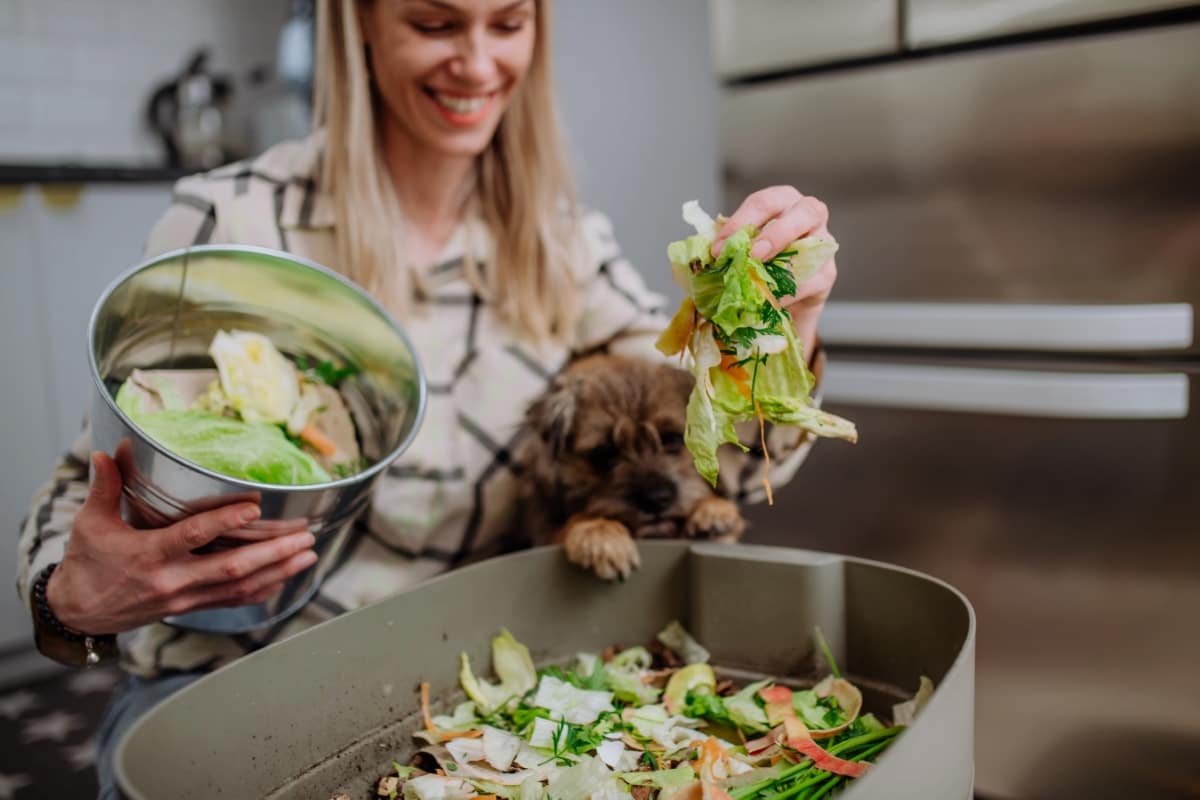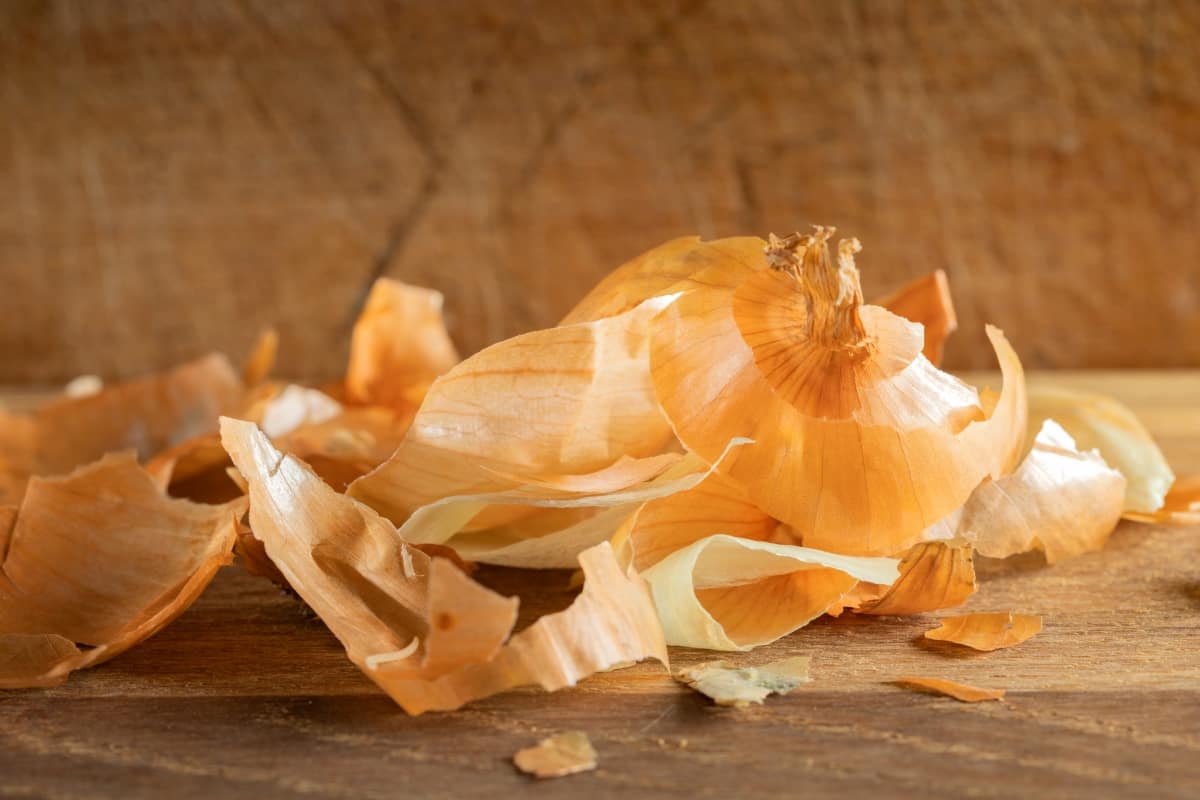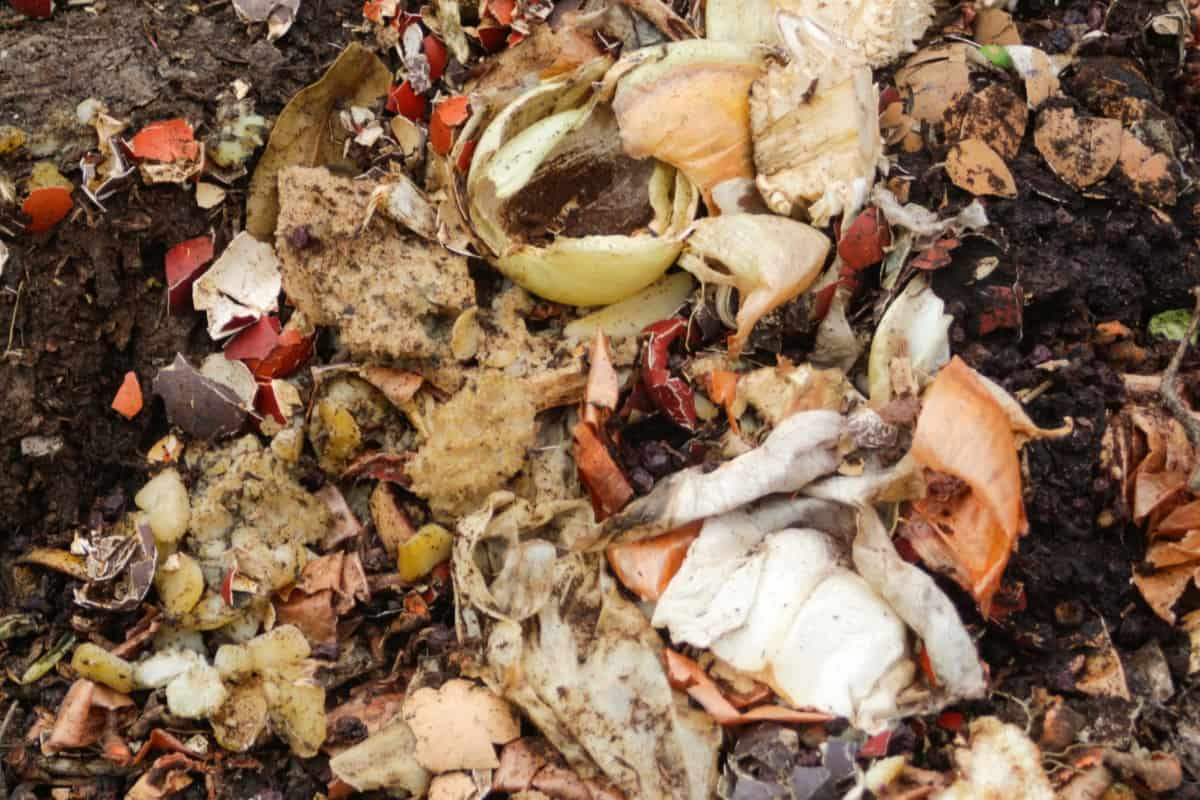As waste accumulation and mismanagement increase, it is imperative that we begin addressing the issue at the household level. The first step toward this solution is the segregation of waste. You can recycle organic waste in your home into valuable organic fertilizer. In addition to reducing waste, you get access to genuine organic food for your plants rather than buying it from the market. Without waiting, learn how to turn food scraps into plant-boosting soil additives or pest-fighting protection for your garden.

Uses of Onion Peels and Kitchen Scraps for Your Garden
Mulch Your Garden Plants with Onion Peels
Mulch is an organic or inorganic material layer applied to the soil’s surface for benefits such as reducing weed growth, preserving soil moisture, etc. Using onion skins as mulch will enrich your soil with potassium and calcium, which is beneficial to plant growth. The dry onion peels will decompose quickly.
Make an Onion Peel Tea for Your Garden Plants
Several methods exist for making onion peel tea: one is to boil the onion peels in water for a few hours, and the other is to soak the onion peels in water for 24 hours. Some people do not recommend boiling. Drop two to three handfuls of onion peels into a liter of water and let them soak for 24 hours. Use the liquid fertilizer after 24 hours after straining it out. If you regularly fertilize your garden, the fertilizer can be used without dilution or with a further dilution of 1:1 in water. You can see the results in about three months if you use it once every 15 days.
Add Onion Peels and Kitchen Scraps to the Compost Pile
Compost onion peelings and skins to make nutrient-rich compost. You can counteract their rotting smell by burying them in your compost pile a few inches deep. Worm composting bins should not be added to them. You should not worry about onion skins and scraps negatively affecting your compost pile’s microbes.
Skins and waste from onions do not produce more onions, but they add an unpleasant odor to the pile and may attract pests. Generally, onion peels should be buried inside a compost pile some inches deep. Adding peels to the compost balances the pH while the acidity is lowered. Additionally, it reduces soil compaction.
Make Onion Peel Pesticide for Your Garden Plants
Making your pesticide recipe at home is sometimes better since many commercial pesticides contain harmful additives. To make the onion pesticide, chop an onion and add four cloves of garlic, two teaspoons of chili powder, and a teaspoon of cinnamon powder to the blender. Then add water and blend everything. It should be diluted with more water until it reaches a 5:1 ratio, in which the amount of water is five times greater than that of the solution. You should add it to your plants every 15 days for three months to achieve the best results.
Used Coffee Grounds as Nitrogen Fertilizer
For plants to thrive, they need nitrogen and minerals found in used coffee grounds. In addition to caffeine, our caffeine byproduct contains calcium, copper, and potassium, natural elements that sustain plant growth. Use the grounds only on acid-loving plants or alkaline soil. Start slowly by adding modest amounts to your potted plants or garden-try one tablespoon for potted plants and one cup for gardens.
In case you missed it: Best Potting Soil and Fertilizers for Container Gardening

Before using the grounds, it is recommended that they be dried so that mold won’t grow on them. For slow-release nitrogen, sprinkle used grounds around plants before watering. For a gentle, fast-acting liquid fertilizer, dilute used grounds with water.
Use Banana Peels as a Potassium Boost for Your Garden Plants
When used as an organic solution alternative to chemical fertilizers, this disposable skin contains potassium to help plants grow flowers and fruit. You can either plant the peel under the soil near the roots of a plant, such as a rose bush, or throw it on the soil top and allow it to decompose. Pour the banana scrap onto your plant or bush after liquefying it in a blender with one quart of water if you are worried about pests or animals.
Egg Shells to Eliminate Calcium Deficiency in Garden Plants
Your soil will benefit from calcium added by eggshells as fertilizer. Eggshells can be added to holes in your garden when planting seedlings, or they can be worked into the soil around plants that have already been planted. It is suggested to use four or five eggshells per plant. In addition, this same method is suggested to keep tomato plants from suffering from blossom-end rot. For slugs and snails to stay away from plants, some gardening sources recommend sprinkling crushed eggshells around them. If you have many eggshells on hand and have a major slug problem, try this.
Keep Pests Away with Orange Peels
You can use orange peels to discourage pests from feeding on your flowers, food, and more instead of throwing them in the trash. Many bug-repellent sprays contain orange peels as an ingredient because they are an effective natural pest deterrent. Fleas, fire ants, mosquitoes, flies, and roaches dislike the scent of the peels, so they work well. You can use orange peels to create an anti-pest barrier in your garden by scattering them around the base. Peels can also be buried just beneath the soil surface or shredded and incorporated into the soil in an area where aphids are present.
Use Nutshells to Aerate the Soil and Suppress Weeds
Nuts are the healthiest snack foods, and if you are growing a garden, their shells can be reused as fertilizer. The broken shells of nuts and seeds can be used as a thick, nutrient-rich mulch around plants. Providing a protective barrier against weed growth, they can aerate the soil. Before scattering the crushed shells on the soil, rinse off any salt or seasoning.
In case you missed it: Neem Rich Vermicompost for Garden Plants: Unlock and Boost the Power of Neem

Conclusion
Various natural fruit skins and leafy vegetable scraps can be added to your topsoil. All the good stuff that composting does will eventually happen to them. By composting in a pile or bin, you will have ready access to rich soil for amending garden beds or filling new planter boxes. Bury your food scraps to prevent rodents and other animals from eating them if you want to throw them all in the soil.
- Feed Your Flock for Less: Top 10 Tips to Save on Chicken Feed
- Ultimate Guide to Ossabaw Island Hog: Breeding, Raising, Diet, and Care
- Hatching Answers: The Top 10 Reasons Your Chickens Aren’t Laying Eggs
- Eggs and Economics: Breaking Down the Cost of Raising Backyard Chickens
- Defend Your Greens: Proven Methods to Keep Iguanas Out of Your Garden
- Ultimate Guide to Cinnamon Queen Chicken: A Comprehensive Guide for Beginners
- Ultimate Guide to California Tan Chicken: Breeding, Raising, Diet, Egg-Production and Care
- Ultimate Guide to Marsh Daisy Chicken: Breeding, Raising, Diet, and Care
- 10 Types of Chicken Farming Businesses You Can Start for Profits